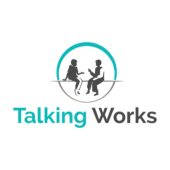
OCD therapists in Oneonta, New York NY

Katherine Rabinowitz
Licensed Psychoanalyst, LP, M.A., NCPsyA
OCD is bandied about a lot these days. Sometimes it's confused with OCPD, and they are not the same thing. As this is to be a short description of the issue, the best I can do is to say that OCD is an anxiety disorder and OCPD is a personality disorder. There is some overlap. Both vary in severity, and difficulty hauling oneself out of. That stuckness is part of the disorder itself. To understand it better I suggest you read that part on my website that explains it in greater detail. It's under the tab "What's Troubling You."considerably greater detail.
Desiree Woehrle
Licensed Clinical Social Worker, LCSW, SIFI
Obsessive Compulsive Disorder is an anxiety disorder that causes us to get stuck repeating certain behaviors or thoughts in such a way that our life begins to get thrown off. Stress, security, and safety are often triggers for obsessive thoughts and compulsions. We work extra hard to figure out or ensure that we or others are okay, even if said thoughts and activities aren't actually correlated with increased safety. We may notice the flawed logic and still find it difficult to part with the thought and/or behavior. At times, it can caused by a traumatic event, unmet need or an anxious need for control. Whatever the reason, a free discovery call will allow us to ensure we're the right match for tackling this pattern and helping you release all the things that are no longer serving you.
Regina Lazarovich
Psychologist, PhD
Does this sound familiar?
You try to make sure that things go well, whether it is keeping yourself and others safe, making the best possible decisions, or being an ethical and moral person. You go to great lengths to avoid negative consequences. You are thorough and detail oriented and may have accomplished a great deal because of these traits.
However, you pay a steep price in the form of recurring unwanted thoughts, images, doubts, or impulses that make you feel anxious and ashamed. These thoughts intrude on your awareness and take your attention away from the people you care about and the things you would rather be doing. These are called obsessions and can fall into one or more categories such as fear of being contaminated by germs, chemicals, or dirt; being plagued by doubts and uncertainty; struggling with decision making; feeling very anxious when objects are not symmetrical or organized in a specific way; feeling scared of unlucky numbers, objects or themes; feeling terrified and disgusted by thoughts or images of losing control and harming yourself or someone else; feeling mortified by thoughts of doing something obscene or inappropriate in public; feeling disturbed by unpleasant immoral, sexual or religious thoughts or images; obsessing about health or any topic whatsoever, including obsessing about whether the obsessing will ever stop.
You try to avoid or escape anxiety-provoking situations, objects and thoughts either to reduce the distress related to your obsessions or to prevent something bad from happening. Whenever you cannot avoid or escape, you feel driven to perform certain actions or think special thoughts to reduce your distress. These rituals are called compulsions.
Common types of compulsions include thinking special thoughts in order to counteract negative thoughts; excessive washing and cleaning; checking and re-checking; counting; organizing things in a specific way; following a strict routine; repeating specific words or actions; trying to do things perfectly; and asking for a lot of reassurance from others. Unfortunately, engaging in compulsions only results in temporary relief and perpetuates the OCD cycle over the long-term. Ultimately, OCD ends up diverting your time and energy from the people and things you truly care about.
With Exposure and Response Prevention (ERP), I will teach you skills for working with thoughts and behaviors so you can break the OCD cycle.
Talking Works
Counselor/Therapist, LMSW, LMHC, LCSW
We have many therapists who are experienced in working with OCD. Please take a look at our general statement here and our website: https://talkingworkscounseling.com/
Eben Stiles
Licensed Clinical Social Worker, LMSW
Therapy for OCD offers individuals a structured and evidence-based approach to reducing symptoms, improving functioning, and reclaiming their lives from the grip of obsessions and compulsions. By working collaboratively, individuals with OCD can learn effective strategies to manage their symptoms and achieve greater freedom and well-being.





